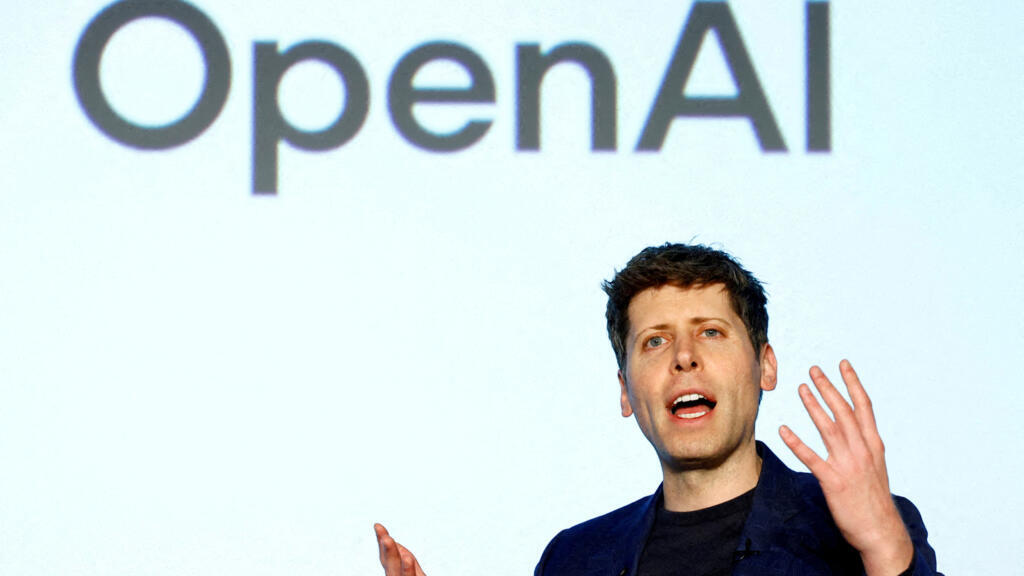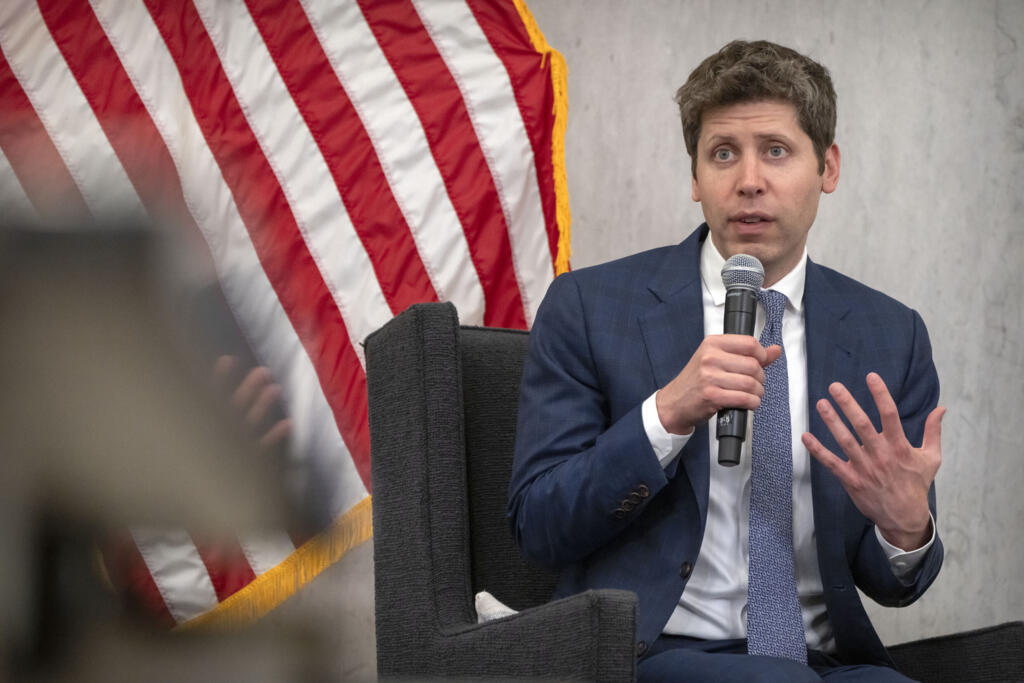
Since dropping out of Stanford University, Sam Altman has become one of the world's most influential tech entrepreneurs – at the helm of OpenAI and its artificial intelligence platform ChatGPT. The author of a new biography of Altman tells RFI what his ascent reveals about AI, Silicon Valley and how tech is rewriting traditional power structures.
Keach Hagey, Wall Street Journal reporter and author of The Optimist: Sam Altman, OpenAI, and the Race to Invent the Future, spoke to RFI's Thomas Bourdeau.
RFI: How did you meet Sam Altman?
Keach Hagey: I knew of Sam Altman through his role as president of Y Combinator [a start-up incubator], but I really met him when I went to interview him for a profile in the Wall Street Journal shortly after the launch of ChatGPT.
He gave us a tour of OpenAI's headquarters in San Francisco. Then we talked for about three hours; it was a very intense interview. The idea for the book came shortly after that.
Your book is like a Who's Who of Silicon Valley. How did you go about bringing all these connections to life?
What interested me was the intellectual history behind the story of AI. It's a bit like a family tree of ideas... In Silicon Valley, money and ideas often go hand in hand.
What makes the history of AI a little complicated to tell is that the idea of general artificial intelligence and its existential threat were really considered from the very beginning of OpenAI. That's fascinating.
ChatGPT team calls for global watchdog to oversee superintelligent AI
So Sam Altman and OpenAI were afraid of AI even as they were working on it?
Yes, and it's really two sides of the same coin. In the beginning, when AI was considered a crazy idea, saying you were afraid of it was also a way of showing how seriously you took it.
You have to believe that something can be real in order to be afraid of it, right? If it's just fiction, why be afraid of it?
This 'family tree of ideas' also tells us a lot about how Silicon Valley works.
Silicon Valley is actually very small considering its global influence. It's really just a small handful of people who come from this little club that was, for many, shaped by Y Combinator.
Sam Altman's power comes from all the people he knows and all the favours they do for each other. They can all text each other very casually, even at this very high level.
Is Sam Altman a unique character in the tech world?
[PayPal co-founder] Peter Thiel says that Sam Altman embodies the zeitgeist of Silicon Valley, and I think that's true. He and [Facebook co-founder] Mark Zuckerberg are only a year apart in age, and their stories are, in a way, similar. They are both millennials, both left prestigious universities to found their start-ups.
Of course, Mark Zuckerberg was successful much earlier, but I think they are part of the same culture – Silicon Valley culture, which values youth above all else. Youth and speed are the most important qualities in the tech world.
Meet Jean-Zay, the supercomputer powering France’s AI ambitions
Altman was abruptly fired by his company's board of directors in November 2023. What a twist...
At the time, I had signed a contract to write a book about him, and it was surreal, honestly. I felt like I was dreaming.
For the next five days, among those involved, as well as the journalists covering the story, I don't think anyone slept. It was like a fog. Every hour, the story changed.
Altman subsequently returned as CEO. The OpenAI tree was shaken, but its roots are strong...
The tree played a big role in his return. Minutes after his dismissal, Sam contacted another branch: Brian Chesky, the CEO of Airbnb, a friend of his, who became a kind of advisor throughout this process.
Emmett Shear was briefly appointed CEO in the midst of intense negotiations, and he had also been in the first Y Combinator class with Sam Altman, back in 2005. Shear and Chesky knew each other, and Chesky was able to negotiate Sam's return.
Without this close-knit group of people, I'm not sure Sam Altman would have been able to return so quickly, or at all.

People used to talk about the "PayPal mafia". Should we now be talking about the "OpenAI mafia"?
Since that dismissal, some OpenAI founders have launched their own AI companies... So it's true that, in a way, OpenAI is like a breeding ground for the future of AI. In that sense, it's like the "PayPal mafia".
But on the other hand, I don't know if they collaborate in the same way.
In the book, you mention that the Department of Defence has made considerable investments in AI. Is that a trend?
Yes, one of the most surprising developments has been the speed with which these young AI companies like OpenAI and Anthropic have embraced the idea of collaborating with the defence industry. They both have contracts with the Pentagon.
Until very recently, it was kind of taboo in Silicon Valley to work for the defence sector. I think the previous generation believed that technology was an ideal and would not be part of warfare in this way. I was surprised at how quickly everyone agreed to say "OK, let's use AI for defence", without asking too many questions.
Is AI sexist? How artificial images are perpetuating gender bias in reality
It's also striking how quickly AI is becoming part of everyday life.
That's true, and it's one of Sam Altman's fundamental qualities. He loves speed in his personal life. He loves racing cars. He liked to judge other start-up founders on how quickly they responded to their emails.
Speed is one of the great virtues of his worldview, and his company is built in his image.
What did you learn from writing about Altman's life?
Sam's life is a lesson in how to gain power. And in a way, power begins with a certain humility. Sam will say: "What can I do for you? How can I help you?" And that's how he starts his relationships with people.
Sam's algorithm is to understand what you need and how to get it. He calls it being helpful. [Tech investor and essayist] Paul Graham says it's a way to become powerful. It's actually the same thing because, over time, the entire Silicon Valley network feels indebted to him.
This article was adapted from the original version in French and has been edited for clarity.







